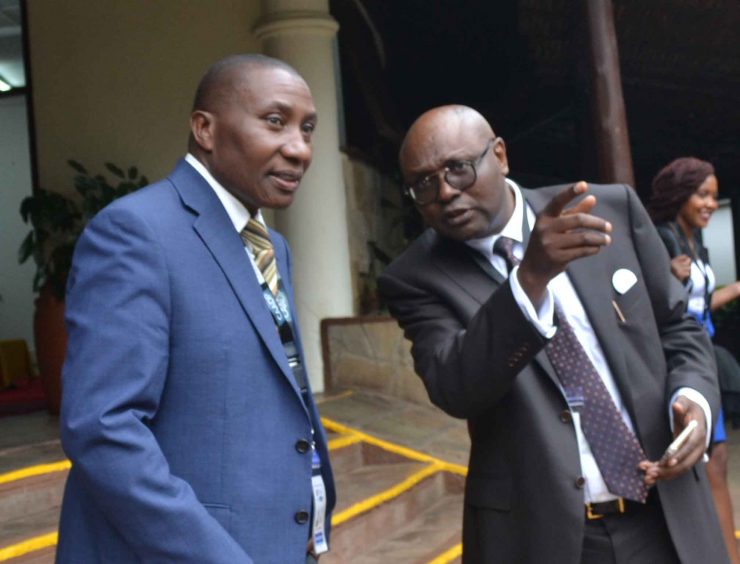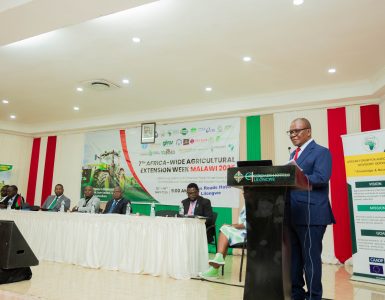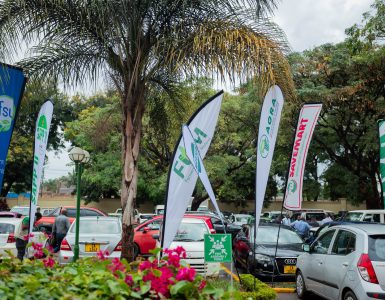By Grace Musimami
After the successful launch of the second biennial review report, The African Union Commission through its department of rural economy and agriculture has decided to conduct a Media capacity building workshop for African agriculture Journalists to ensure accurate reporting on Malabo Declarations Biennial Review Report.
According to Dr. Godfrey Bahigwa the director DREA, the media training is based on the tremendous value that the Biennial Review brings to Africa and its governments and populace.
“DREA through its CAADP team developed a communications strategy to engage all relevant stakeholders and enhance the visibility of the Biennial Review. The strategy spells out the methods and channels in which to engage the different stakeholders to create awareness and achieve maximum impact out of the report. This is why it is important that the media is trained and informed on the outcomes of this report for better translation” said Godfrey Bahigwa.
The Biennial Review (BR) mechanism aims at providing a platform for mutual accountability, peer review and peer pressure that will motivate increased performance of each AU member State to deliver on targets set for the Malabo Declaration, through a well-designed, transparent and performance-based Monitoring and Evaluation (M&E) and Biennial Reporting to the AU Assembly, that will, in turn, trigger evidence-based planning and implementation at all appropriate levels (national, sub-regional and continental) for the expected agricultural growth and transformation in Africa.
The workshop which will take place between 25th to 26th February 2020 in Johannesburg, will draw participants from all over the continent.
According to Carol Jilombo, the CAADP Communications officer at DREA, the workshop aims to train journalists from all media platforms to create a clear understanding of the Malabo Declaration and the Scorecard; the second cycle of the BR and what it means, as well as how they can effectively report on it and use it as a tool for accountability in their respective countries.
“After this training, we expect that the journalist media houses will then dedicate space to comprehensive coverage of the agricultural transformation process, having understood its power to reposition all of Africa economically and socially.” Adds Carol Jilombo.
The African Union Commission has released and launched the Second Biennial Review Report on implementation progress on the 2014 Malabo Declaration on Accelerated Agricultural Growth and Transformation for Shared Prosperity and Improved Livelihoods, the report was released after consideration by the heads of state at the recently concluded African Union Assembly of Heads of state and government in Addis Ababa, Ethiopia. .
In implementing the Malabo Declaration on accelerated agriculture growth and transformation for shared prosperity and improved livelihoods in Africa, the African Union Commission (AUC) in collaboration with strategic partners has been leading in responding to the commitments of establishing mechanisms for mutual accountability for results and actions. The AU-led Biennial Review (BR) mechanism has achieved great success in the preparation and submission of the Inaugural Biennial Review Report with the African Agriculture Transformation Scorecard (AATS) that were presented to the January 2018 AU Assembly of Heads of State and Government.
Carol Jilombo adds that seminar aims to train journalists (from all media platforms) to create a clear understanding of the Malabo Declaration and the Scorecard; the second cycle of the BR and what it means, as well as how they can effectively report on it and use it as a tool for accountability in their respective countries.
Judith Akolo, a Kenyan Journalist to be trained on Malabo and a member of Africa Agriculture Journalist Network, welcomed the move saying this would help journalists present facts without misinterpreting them.
“As media practitioners, we have always been furnished with policy reports and the struggle for us to read in between the lines sometimes may lead to misappropriated facts, this opportunity is a great move towards keeping the media on track.” Said Akolo.





Add comment